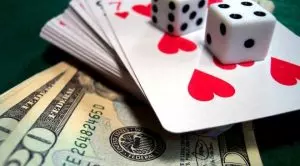 Gambling operators, which have been enjoying a profit increase during the coronavirus pandemic lockdowns, have left the National Health Service (NHS) to deal with gambling addiction, the head of the mental health service in England said.
Gambling operators, which have been enjoying a profit increase during the coronavirus pandemic lockdowns, have left the National Health Service (NHS) to deal with gambling addiction, the head of the mental health service in England said.
The mental health director for NHS England, Claire Murdoch, explained that it was time for gambling companies to face a mandatory tax that could be used as funding for more problem gambling treatment services in the country. The official of the National Health Service criticised the voluntary system that provided the gambling sector with the chance to decide how much to contribute to gambling addiction treatment services at a time when the UK Government is finally reviewing the laws regulating the industry.
Ms Murdoch explained for The Guardian that the gambling industry has caused destruction to young people in the country, so it was now clear that gambling operators were focused on profit, even if that meant making money on their customers’ backs. At the same time, the NHS is the one left “to pick up the pieces”, the mental health director for NHS England said.
She further noted that the biggest challenge for the National Health Service in the past year has been the coronavirus pandemic but, despite that, psychologists and nurses have been treating hundreds of people suffering from problem gambling behaviour.
Voluntary Contributions Made by Gambling Operators “Not Big Enough”
 According to the NHS official, the UK gambling sector must take more responsibility when it comes to helping people deal with gambling addiction. Ms Murdoch said that local bookmakers must also take the initiative and agree to pay a mandatory levy that could be used to fund treatment of problem gambling-related harm.
According to the NHS official, the UK gambling sector must take more responsibility when it comes to helping people deal with gambling addiction. Ms Murdoch said that local bookmakers must also take the initiative and agree to pay a mandatory levy that could be used to fund treatment of problem gambling-related harm.
As revealed by Ms Murdoch, 750 individuals had been referred to treatment for serious gambling addiction since April 2020. Unfortunately, these cases are being referred to by anti-gambling campaigners just as “the tip of the iceberg”, because they claim the actual number of problem gamblers who need professional treatment is much bigger.
According to a 2018 report of the National Health Service Digital, there are approximately 280,000 gambling addicts in England. Currently, the NHS is considering the opening of more clinics aimed at problem gambling treatment across the country.
Labour MP Carolyn Harris, who heads the cross-party group on gambling-related harm, shared that the existing model of voluntary contributions made by the gambling sector fails badly, so a mandatory levy is needed to ensure the lacking fairness. Some anti-gambling campaigners have also claimed that the voluntary donations made by the companies have been too little.
As Casino Guardian reported earlier, online gambling participation rates have increased during coronavirus lockdown. The rise meant a massive boost for some of the leading gambling companies that operate in the country. According to data provided by the UK Gambling Commission (UKGC), the gross gambling yield among the biggest companies in the sector experienced a 30% growth during the lockdown in November and December 2020.
- Author


